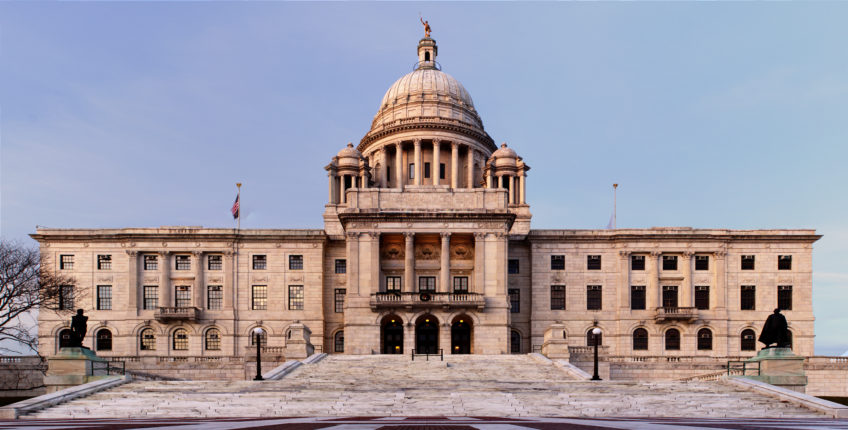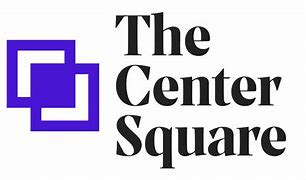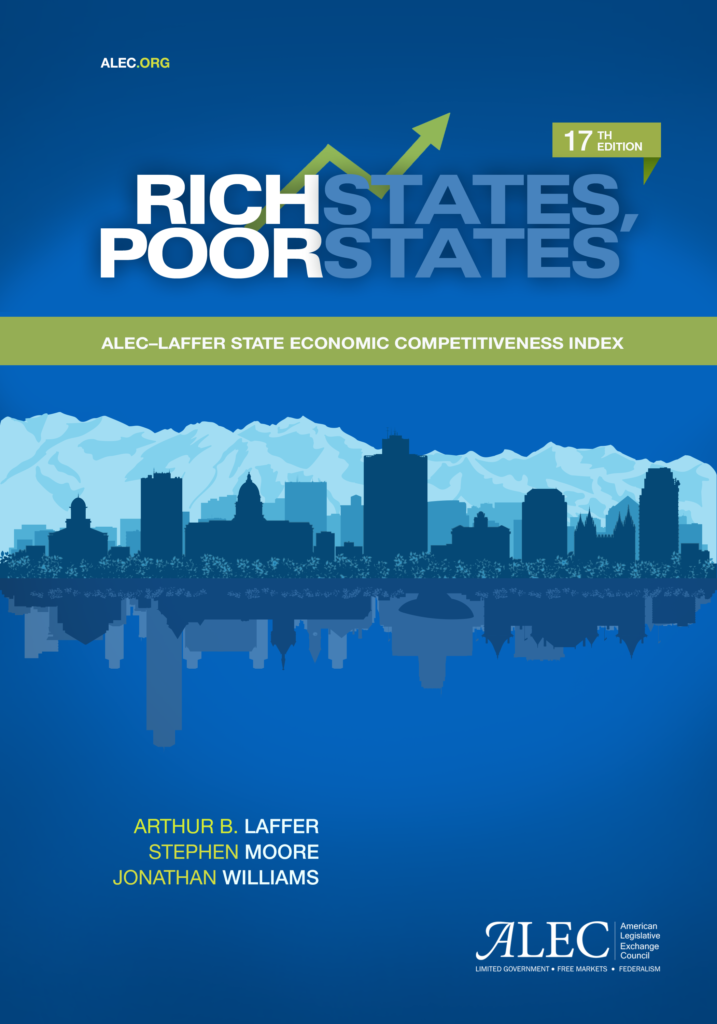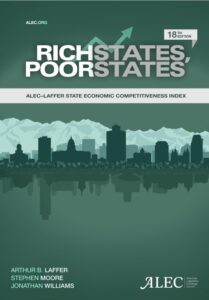
Not only does Rhode Island’s economic outlook rank a dismal 35 out of 50 according to the 9th annual Rich States, Poor States, but more than 70,000 have exited the state over the past decade. Governor Raimondo’s State of the State address proposes free college tuition, increasing the minimum wage and reducing the anti-growth Motor Vehicle Excise Tax. Taxpayers should welcome the governor’s call in the State of the State address to reduce the anti-growth Motor Vehicle Excise Tax. However, her other agenda items of free tuition (i.e. higher education spending) and increasing the minimum wage will further inhibit Rhode Island’s economy.
Her proposal, Rhode Island’s Promise, would provide two years of free tuition at CCRI, RIC and URI for all Rhode Islander high school graduates. Students must maintain full-time enrollment and a 2.0 GPA to remain in the program. Annual costs upon are estimated to be $30 million. But two years of “free” college may not be the best option for Rhode Islanders. As Gary Sasse, director of the Hassenfield Institute for Public Leadership at Bryant University explains, “Regarding finances, governors and legislators can do anything, but they can’t do everything. The question of affordability is about choices and priorities. Thirty million for free college means that amount will not be available for elementary education, social services or tax cuts.” Rhode Island students deserve an excellent, cost-effective education system that prepares them for the challenges of a modern workforce. Higher education reforms, such as the ones listed in the ALEC publication, 10 Questions Legislators Should Ask About Higher Education, are a great place to start.
All Rhode Islanders need a fair shot to get ahead and stay ahead. Unfortunately, the governor’s proposal to increase the minimum wage from $9.60 per hour $10.50 per hour will not expand opportunities for workers. A recent ALEC study Raising the Minimum Wage: The Effects on Employment, Business and Consumers explains how increasing the minimum wage causes unintended economic consequences for young people and working families. While some workers may enjoy an income boost, many others may lose their jobs or see their hours cut. When employers are forced to pay higher wages, they often leave entry-level workers—those that need a paycheck the most—out of the job market. Perhaps this explains why efforts to raise the minimum wage last session failed. To help all workers get ahead, Governor Raimondo and the legislature should remove barriers to job creation and opportunity.
Rhode Island’s burdensome Motor Vehicle Excise Tax is one such barrier. The car tax continues to spark frustration in the hearts of Rhode Islanders statewide. In addition, the imposition of different rates based on where the car owner lives makes the tax difficult to administer and collect. For example, a $14,000 car in Central Falls is taxed at $620 per year while the same car in East Greenwich is taxed at $183, according to the Rhode Island League of Cities and Towns. Governor Raimondo proposes requiring cities and towns to use fair trade-in value for assessment purposes, or 70 percent of full valuation. The governor estimates her proposal will cut the dreaded tax by at least 30 percent, putting more than $50 million back in Rhode Islanders’ pockets. While reforming the tax is a step in the right direction, Rhode Island still compares negatively to the nearly half of the states—including neighboring New York—which do not impose one at all. Eliminating the Motor Vehicle Excise Tax would make Rhode Island’s economic climate more hospitable for families and business owners.
Governor Raimondo rightly identifies the Motor Vehicle Excise Tax and the cost of high education as economic barriers. However, raising the minimum wage does nothing to increase opportunities for hard working Rhode Islanders. And spending yet more taxpayer money to provide “free” college tuition will not magically create jobs. Pro-growth tax reform—such as reducing the state’s burdensome personal and corporate income taxes—can create the economic prosperity needed to help all Rhode Islanders pursue their individual dreams.




